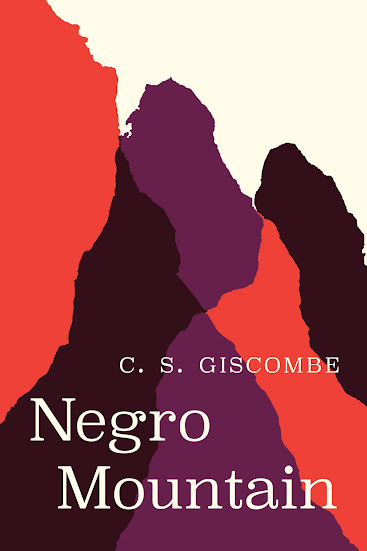There had been a gate at the driveway, but only
the poets remained, grown over by the hedges that stopped on either side
of the entrance from the street. What do hills
summarize? Origin stories? Right
and left separated long before this. Bait me, love
—I can pass until I speak. (“First Dream”)
The latest from Berkeley, California poet Cecil Giscombe is the collection Negro Mountain (Chicago IL: The University of Chicago Press, 2023), a collection that explores and articulates how history bestows and shapes names, including legacies of alteration, altercation, witness, erasure and the long thread. Giscombe is a poet I first heard of through his being paired with Prince George, British Columbia poet Barry McKinnon by Louis Cabri for the eighteenth episode of PhillyTalks (February 2, 2001), a series of paired readings and conversation—the audio and transcript from which can be found here—two poets paired for their particular examinations of landscape, history and geographic space across the extended lyric. Giscombe’s infamous collection Giscome Road (Dalkey Archive, 1998), which originally prompted the pairing, is an articulation of, around and through the town of Giscome, British Columbia, a town named after one of his own ancestors, a short drive north-east of Prince George. Much like McKinnon, Giscombe favours the long, lyric stretch, and I would find it interesting to hear him read certain of these poems aloud, to catch how he marks his breaks, his breath, such as the poem “Seven Mountains,” a poem that includes “The mountaintops // are bare rock in wave-like patterns, there’s often // as not // a fat saddle between // the ridges. // Who do you think you saw?” Both projects—Negro Mountain and Giscome Road—are specifically attuned to a history of Black settlers and a response to those settlers, and how naming shifts, alters and even mangles across interpretations. “Negro Mountain,” as he writes, named for an individual who is almost completely unknown, but for the colour of his skin and the event of his death. As he writes to open this new collection:
Negro Mountain, in the Allegheny Range of the eastern United States, is a long ridge that straddles the Pennsylvania-Maryland border and the Maso-Dixon Line. The ridge has been known as Negro Mountain since the late eighteenth century because of “an incident” that took place there in the 1750s—in a skirmish between a band of English speculators, led by Thomas Cresap, and a party of Native Americans, a Black man accompanying the English group was killed by a shot fired by one of the Native Americans. The Black man’s name (as it has been handed down in Pennsylvania stories) was Nemesis or Nemises. Brantz Mayer—in his 1851 book on the Iroquois leader Logan and the Cresap family—notes that “Negro Mountain [is] where a gigantic African who belonged to [Cresap’s] party bequeathed his name in death to the towering cliffs.”
The ridge’s name, however, has been a matter of public controversy since the 1920s when the US Geological Survey declared Negro Mountain’s highest point to be the highest point in the Commonwealth of Pennsylvania.
The Black man—called Nemesis or Nemisis in the architecture of stories—who died on the ridge still called Negro Mountain is beyond reach. The mountain—the “very long shadow”—survives.
The collection is shaped across a quintet of sections, akin to a suite: “Seven Dreams,” “The Negro Mountain,” “Camptown,” “Overlapping Apexes (for Ed Roberson)” and “Notes on Region.” Through Giscombe, history speaks as a living, ongoing thread, one that attempts to work and rework bearings across an enormous sense of distance, both temporal and physical. There are dangerous shapes in those hills, some of which still work to reveal themselves, enough to cause any traveller to, through the finding, discover themselves lost.
Camptown’s the long foot of Negro Mountain.
Please yourself, form’s harsh and anything
could slip across a bridge in the wee
hours, when traffic’s not heavy, from one place
or another to Camptown.
Please yourself.
I was a ship on the stormy ocean—stay off me, brother,
I write from bottomless description and
I still might be a monster. (“Camptown”)

Beautiful mountain. The interstate goes right over it.
ReplyDelete